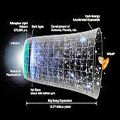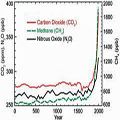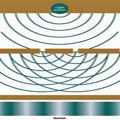
Acid Rain
Compounds emitted by smokestakes, vehicles and aircraft are deposited by rain, destroying the environment and corroding even stone and metal.

Antimatter
Each particle has a opposite form, its anti-particle, a discovery that has had wide-ranging effects

Archaea: The Third Domain
Biologists disputed the classification of "extremophiles" for 20 years, despite the evidence.

Atom
The concept that all matter is composed of an invisible but fundamental entity was resisted for a very long time.
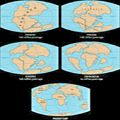
Continental Drift and Plate Tectonics
The explanation for the geological relationship between continents was originally heresy

DDT Poisoning
A poison that was initially considered a solution to disease-bearing insects and harmless to humans and animals became lethal
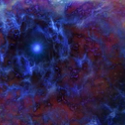
Dark Matter
We think of "matter" as stuff made of atoms. That kind of matter is an insignificant amount . Something like 84 percent of the matter in the universe is invisible and unidentifiable "dark matter."

Earth's True Age
The evidence for a 4-billion-years-old Earth was a serious contradiction of the widely held Biblical view

Glacial Moraines
Evidence for ancient glaciers and their rocky deposits conflicted with the 18th century's Biblical perspective
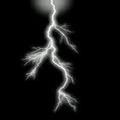
Lightning as Electricity
What is so obvious to us was not understood until Ben Franklin's famous 1752 demonstration.
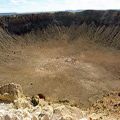
Meteorite Vaporization
Geologists did not understand that massive meteorites could vaporize on impact
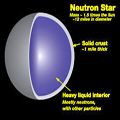
Neutron Stars
Even the great Thomas Gold could not convince a leading science organization to consider neutron stars
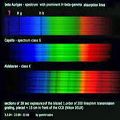
Spectral Analysis
The correct interpretation of light spectra from stars was presented by a young researcher whose evidence was initially rejected.

Stars as Independent Worlds
Bruno was burned at the stake for asserting that the Sun was one of countless stars in an infinite universe

Symbiogenesis
Lynn Margulis's theory of how microbe combinations led to complex cells in evolution was rejected by the scientific establishment for years.


